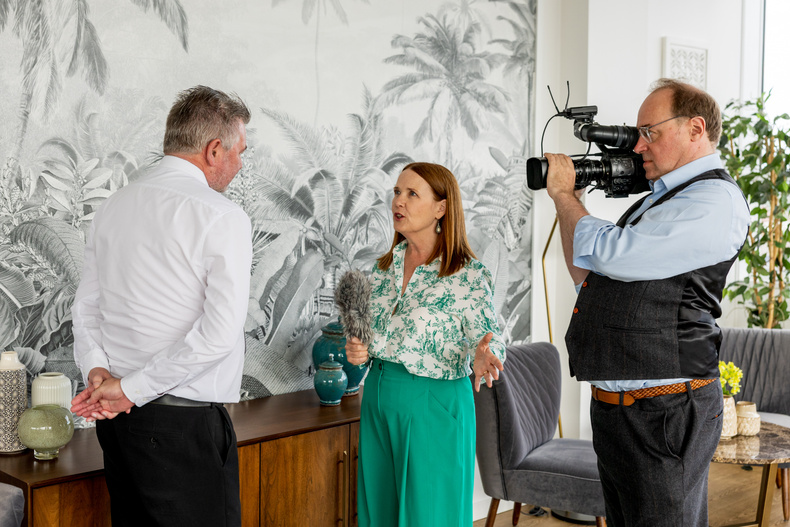How to win at media interviews: Be safely interesting

Written by Sandra Collins from Hayes Collins Media
As a media trainer, I’ve carried out thousands of mock interviews over the years. And whether it’s with a politician, a CEO or a charity worker, there’s one thing they all fear the most.
Saying the wrong thing.
Now of course, no-one wants to drop the organisation in it. No-one wants to be the reason for share prices to drop or cause reputational damage. And definitely no-one wants to end up as a meme.
But with this concern nagging away, most people do entirely the wrong thing. They go wildly in the opposite direction and make everything they say so bland, dull and safe that they end up saying nothing at all.
This is just as much of a risk.
Because your audience (if they’re still listening to you at all) will be likely thinking ‘what’s the point of them?’, ‘they have no relevance to me’ or – even worse – ‘what are they trying to hide?’.
In today’s attention economy, you can’t afford to fly below the radar. If you want people to listen to you, you have to grab them and keep them engaged. And you’re not going to do that by speaking like an annual report with a microphone.
So what’s the sweet spot? It’s being safely interesting.
Interesting enough to be stand out in a crowded communication marketplace. But on your own terms.
What does this look like in practice?
Firstly, get your listener’s brains to light up. We shut down when we hear words like policy, stakeholder and strategy.
But we’ll start listening if you use what we call ‘wow words’ – words that stand out, are a bit unexpected and are the words that your audience would use in everyday conversation.
Complicated bureaucratic or technical language doesn’t make you look clever – it just makes you look irrelevant to the listener’s life.
Come ready with stories and examples – that’s what we’ll remember. Plan an example, proof point or anecdote for each point you want to land. It demonstrates your relevance and you’ll feel more comfortable talking about real things.
Anticipate the ‘bear traps’ and approach them with curiosity and respect. Rise to the bait with a challenging question and you’re immediately on the defensive.
Instead, end the answer in your own territory by giving the reporter something interesting on which to base their new question.
Finally, sound like you’re actually interested in what you have to say. Nerves can flatten out your delivery, so get some practise in.
Media training is the gold standard, but if that’s not possible, get out your smartphone and record some of your key points. Could you vary the pitch and pace? Do you need to add more emphasis or pause more?
Being dull on TV and radio is easy. Being interesting takes practise. But it really is worth it.
